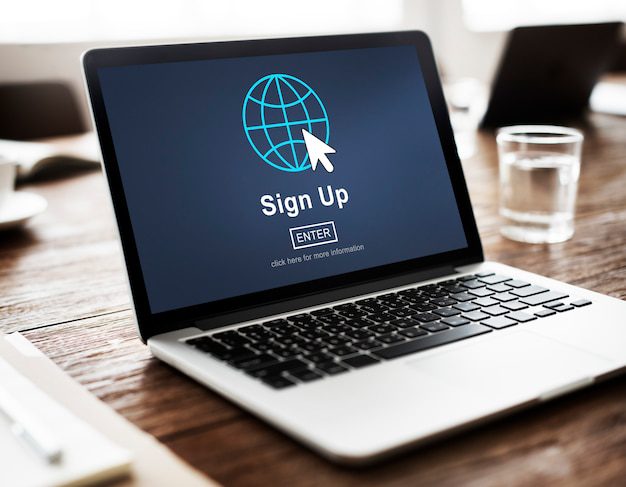Who can see you when you use VPN?
The Basics of VPN
When it comes to online privacy and security, a Virtual Private Network (VPN) is an essential tool. Using a VPN can help protect your sensitive data and ensure your online activities remain private. But have you ever wondered who can see you when you use a VPN?
Your Internet Service Provider (ISP)
Your ISP plays a significant role in your internet connection. They have the ability to monitor your online activities and collect data on your browsing habits. However, when you use a VPN, your ISP’s view of your online activities is limited. The VPN encrypts your internet traffic, making it difficult for your ISP to see what websites you visit or what content you access.
Using a VPN can help safeguard your online privacy by preventing your ISP from tracking your online behavior. This means they cannot sell your browsing data or target you with personalized advertisements.
Government Agencies
While a VPN helps protect your privacy from your ISP, it also offers a level of protection against government agencies. In the UK, government agencies have surveillance powers, allowing them to monitor online communications under certain circumstances. However, when you connect to the internet through a VPN, your online activities are hidden from prying eyes.
A VPN creates a secure tunnel between your device and the VPN server, encrypting your data and making it nearly impossible for government agencies to intercept and decipher your online communications.
Online Advertisers and Trackers
Advertisers and website trackers are always looking for ways to gather data on your online behavior. They want to know what websites you visit, what products you’re interested in, and more. However, when you use a VPN, you can keep these trackers at bay.
A VPN masks your IP address and replaces it with the IP address of the VPN server. This means that advertisers and trackers won’t be able to track your real location or identify you based on your IP address.
Other Users on Public Wi-Fi Networks
Public Wi-Fi networks are notorious for their lack of security. When you connect to a public Wi-Fi network, other users connected to the same network can potentially see your online activities. However, using a VPN can make all the difference.
When you use a VPN on a public Wi-Fi network, your internet traffic is encrypted, making it difficult for other users on the same network to intercept and view your online activities.
In summary, when you use a VPN, several parties who would otherwise be able to see your online activities are unable to do so. Your ISP, government agencies, online advertisers and trackers, and other users on public Wi-Fi networks are all kept at bay by the privacy and security measures provided by a VPN. So, if you value your online privacy, using a VPN should be a top priority.
Can someone see my internet history if I use their WiFi with VPN?
In today’s digital age, privacy concerns are at the forefront of everyone’s minds. With individuals becoming increasingly aware of the need to protect their online activities, the use of Virtual Private Networks (VPNs) has become more prevalent. However, one question that often arises is whether someone can see your internet history if you use their WiFi network while connected to a VPN.
Understanding VPNs
A VPN is a tool that creates an encrypted connection between your device and the VPN server, making it difficult for anyone to intercept or monitor your online activities. When you connect to a VPN, your internet traffic is routed through the VPN server, masking your IP address and encrypting your data.
The Role of WiFi Network Owners
If you connect to someone else’s WiFi network and use a VPN, the WiFi network owner won’t be able to see your internet history. The VPN encrypts your data, preventing anyone on the same network from intercepting your online activities. While the WiFi network owner may be able to see that you are connected to their network, they won’t have access to the specific websites you visit or the content you access.
Protecting Your Privacy Further
While using a VPN provides a layer of privacy and security, it is important to note that other factors can compromise your online privacy. For example, if you log into your personal accounts or provide personal information while connected to a public WiFi network, there is still a risk of that information being intercepted.
To enhance your privacy further, it is advisable to follow these best practices:
- Ensure your VPN is reliable and trustworthy.
- Use secure websites with HTTPS encryption.
- Avoid logging into personal accounts or sharing sensitive information on public WiFi networks.
- Regularly update your devices and applications to patch any security vulnerabilities.
Remember, while a VPN can help protect your online activities from prying eyes, it is important to be mindful of other security measures and potential risks.
How do I stop WIFI owner from seeing my history?
When using public or shared Wi-Fi networks, it’s natural to be concerned about your online privacy. Although it is technically possible for the owner of the Wi-Fi network to see your internet browsing history, there are several steps you can take to protect your privacy and keep your browsing activities confidential.
Use a Virtual Private Network (VPN)
A VPN creates an encrypted tunnel between your device and the internet, protecting your data and making it difficult for the Wi-Fi owner to spy on your browsing. By using a VPN, your internet traffic will be routed through a third-party server, ensuring that your browsing history remains hidden from prying eyes.
Enable HTTPS and Use Incognito Mode
When visiting websites, make sure to look for the “https://” prefix in the URL. This indicates that the connection is encrypted, providing an additional layer of security. Additionally, using the private or incognito mode offered by most web browsers can prevent your browsing history from being saved on the device you are using.
Clear Your Browsing History
Regularly clearing your browser’s history and cache can help minimize the chances of someone accessing your browsing activities. Most browsers offer a simple way to clear your history and ensure that no traces are left behind. Remember to choose the option to clear everything, including cookies and cached files.
Use Tor Browser
Tor Browser is a popular tool for maintaining online privacy. It encrypts your internet traffic and directs it through a network of volunteer-operated servers called Tor relays, making it extremely difficult for anyone, including the Wi-Fi owner, to trace your activities back to your device.
Tip: Remember that while these methods can help protect your privacy, they are not foolproof. It’s always a good idea to exercise caution when using public Wi-Fi networks and avoid accessing sensitive information or logging into personal accounts.
By following these steps, you can significantly enhance your online privacy and prevent the Wi-Fi owner from easily seeing your browsing history. Stay vigilant and take control of your digital footprint while using public or shared Wi-Fi networks.
Can your internet provider see your history if you have a VPN?
Virtual Private Networks (VPNs) are becoming increasingly popular among internet users, especially those concerned about their online privacy. But can your internet provider still see your browsing history if you have a VPN enabled? Let’s take a closer look at how VPNs work and whether they can truly protect your browsing activity.
How VPNs work
A VPN creates a secure, encrypted tunnel between your device and the server you’re connecting to. When you use a VPN, all your internet traffic is routed through this tunnel, making it difficult for anyone, including your internet provider, to see what you’re doing online. Your IP address is also masked, further enhancing your privacy and anonymity.
Is your browsing history hidden?
Using a VPN does provide an additional layer of privacy and security, but it’s important to note that not all VPNs are created equal. Some VPNs may keep logs of your browsing history, which could potentially be accessed by authorities or even sold to advertisers. It’s crucial to choose a reputable VPN service that has a strict no-logs policy to ensure your browsing history remains private.
Remember, a VPN encrypts your internet traffic and masks your IP address, but it does not make you completely invisible online. While your internet provider may not be able to directly see your browsing history when using a VPN, they can still identify that you are using a VPN service.
Protecting your online privacy
Using a VPN is just one step towards protecting your online privacy. There are other measures you can take to enhance your security further:
- Use HTTPS: Make sure websites you visit are encrypted with HTTPS, especially when submitting sensitive information.
- Enable firewall: Activate the built-in firewall on your device to add an extra layer of protection.
- Regularly update software: Keep your operating system, antivirus software, and applications up to date to patch any security vulnerabilities.
“Using a VPN can certainly help protect your online privacy, but it’s important to understand its limitations and take additional precautions.”
In conclusion
While using a VPN can significantly enhance your online privacy, it’s important to choose a trustworthy VPN service and understand its limitations. Your internet provider may not be able to see your browsing history directly, but they can still identify that you are using a VPN. By combining the use of a VPN with other security measures, such as HTTPS and firewall protection, you can create a more secure and private online experience.



